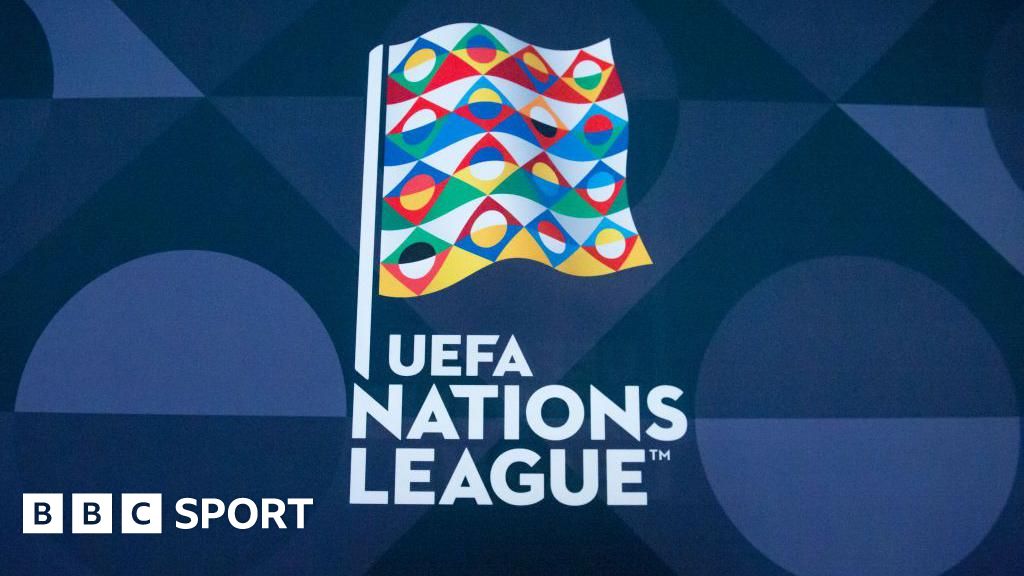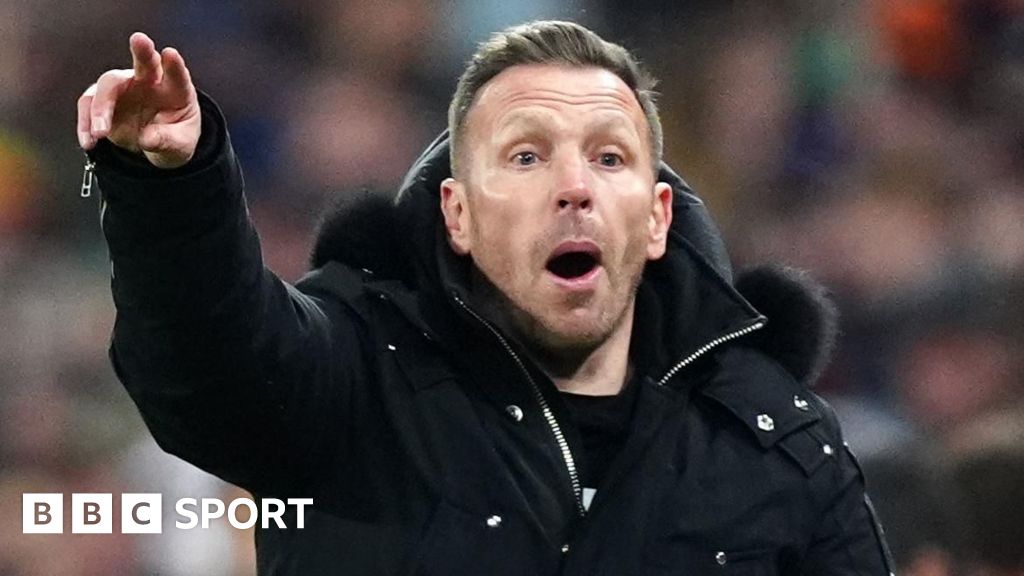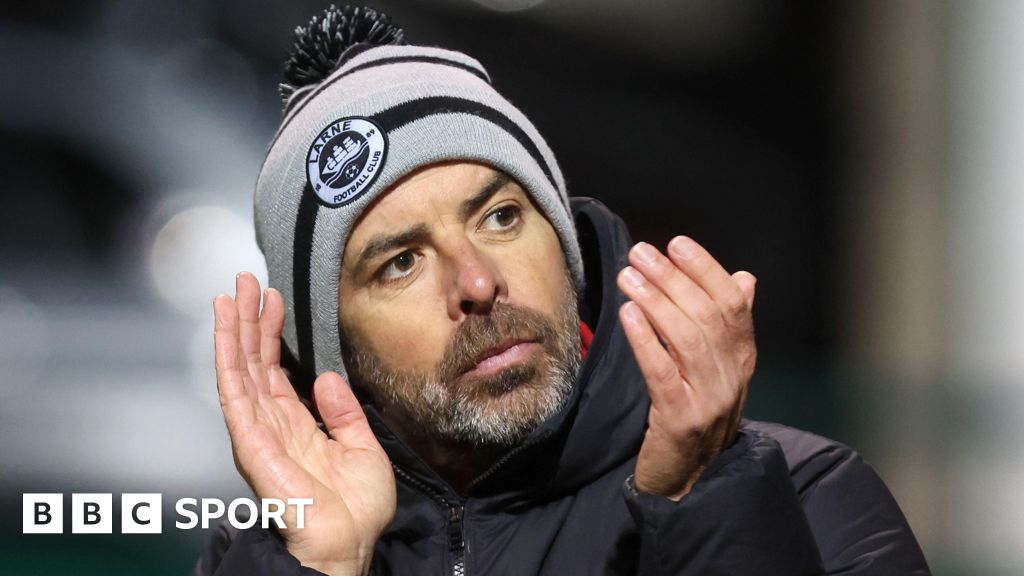ARTICLE AD BOX
Rob Burrow was a Super League star before becoming an MND campaigner
A champion on and off the field, the determination, courage and humility of Rob Burrow guaranteed a legacy that stretches way beyond the sport he loved.
At 5ft 5in, Burrow was among the smallest men in rugby league, but he became one of its biggest names.
Father, family man, friend, competitor, campaigner. His death aged 41 comes nearly five years after he was diagnosed with motor neurone disease.
When Burrow learned of his illness, he told his wife Lindsey: "Thank God it's me and not the kids."
His stoic resilience helped to transform the profile of this condition. His moving story was brought to millions by the BBC Breakfast team who became friends.
Decorated for his talents, Burrow played 492 times for Leeds Rhinos, won eight Grand Finals, three World Club Challenges and two Challenge Cups, as well as 15 England and five Great Britain caps.
A mural was painted on the side of Leeds Beckett University's Student Union to honour Rob Burrow
With his slight frame and diminutive stature, Burrow always stood out among the hulks of the modern rugby league game, from his junior days right through to the elite.
What he lacked in size, he made up for in devastating speed, evasiveness and skill, and he honed his tackling technique to enable him to compensate when it came to felling far bigger opponents.
One moment which best summed up his qualities was his try in Leeds' 2011 Grand Final win against St Helens, when having stepped off the bench at hooker, he ducked through the line and in full flight stepped his way past international full-back Paul Wellens to score a remarkable solo effort.
There was also the emotion of his final game in 2017, when he and long-time friend Danny McGuire - two members of Leeds' oft-referred 'golden generation' - bowed out together with Grand Final success at Old Trafford against Burrow's hometown club Castleford.
Image source, SW Pix
Image caption,Rob Burrow (right) lifts the Super League trophy with Danny McGuire following Leeds' Grand Final win over Castleford in 2017 - their final game for the club
On Burrow's retirement that year, Leeds head coach Brian McDermott said: "Rob will be remembered as one of the greats of our game, not just in the Super League era but throughout the history of the sport."
He initially continued to work in rugby league after hanging up the boots, helping to develop the next generation at Headingley with the club he loved.
It was his resolve and positive outlook after his career ended that brought this unique character to a wider audience.
Burrow revealed he had been diagnosed with MND in December of 2019. There is no cure.
He would gradually lose his ability to talk, to move, and to breathe easily.
"It's heartbreaking," consultant neurologist Dr Agam Jung told a BBC documentary on Burrow.
"You may not be able to speak, you may not be able to swallow, you may not be able to breathe independently, you have weakness in your arms and legs. This leads to dependency and a reduced life span."
How Rob Burrow's life changed after his diagnosis - from Rob Burrow: Living with MND
Burrow married his childhood sweetheart Lindsey in 2006 and the couple had three children together.
"He always says, 'find somebody else, you're still young'," Lindsey said in the documentary, discussing the prospect of a future without her husband. "There will never be anyone else. No-one can ever take Rob's place."
His parents, Geoff and Irene, would help to feed Burrow.
Alongside looking after children Macy, Maya and Jackson and working as a physio in the NHS, Lindsey was effectively his primary carer - her love shining through during the difficult days since his diagnosis.
"Yes, it is sad, but it is a story full of love, hope and optimism," she said.
Burrow lost weight and could not kick a ball with his son or change a nappy, but he retained his spirit despite losing his independence.
A little smile. A defiant thumbs-up. "My mind is so strong and positive," he would say via a speech recognition tool which used recorded samples of his voice.
He joined others including former rugby union player Doddie Weir and footballer Stephen Darby in raising awareness and was brutally honest about the effects of the condition.
"I'm a prisoner in my own body," Burrow said. "The lights are on, but no-one's home. I think like you, but my mind doesn't work right. I can't move my body."
Rob Burrow's mother Irene with her son - from Rob Burrow: Living with MND
Burrow, together with family and friends, wanted to raise funds and awareness around a disease which affects around 5,000 people in the UK.
"It's like a game in a way. We are here to try to beat MND and the only way we are going to win is by collective effort," said Weir, who died in November 2022.
Despite his illness, Burrow remained relentlessly positive.
"Whenever you're around Rob, there's love, there's laughter, there's jokes, usually at my expense or some other big bloke," said former team-mate Barrie McDermott.
"What he lacked in size, he more than made up for in his wit and sharpness."
Lindsey would help him into a swimming pool. It was the only way he could walk without suffering debilitating pain in his joints.
Burrow would joke: "I know when you get married you say, 'in sickness and in health'. I did not think she signed up to look after me so soon."
Image source, Getty Images
Image caption,Kevin Sinfield (right) has raised millions of pounds for motor neurone disease since his former Leeds team-mate's diagnosis
An appeal was launched to raise £5m to build a Rob Burrow Centre for Motor Neurone Disease in Leeds.
One of the prominent fundraisers was Kevin Sinfield, Leeds captain for the bulk of Burrow's playing career. They met when Burrow was 12 and a heartwarming friendship was formed.
When Sinfield ran seven marathons in seven days in December 2020, there was a poignant moment when he spied Burrow and family. The deep bond was clear.
"To see what he's had to go through has been really difficult. Rob was a champion on the field and an incredible friend," said Sinfield.
As a child, Burrow was told he was too small to make it as a player. It turned out his impact was bigger than anyone could have imagined.
"I have a disease with no cure but I have too many reasons to live," he said of his life-limiting illness. "I am not giving in until my last breath."
In December 2019, he was told he may have a year to live, two at most. He defied all the expectations.

 5 months ago
18
5 months ago
18








 English (US)
English (US)